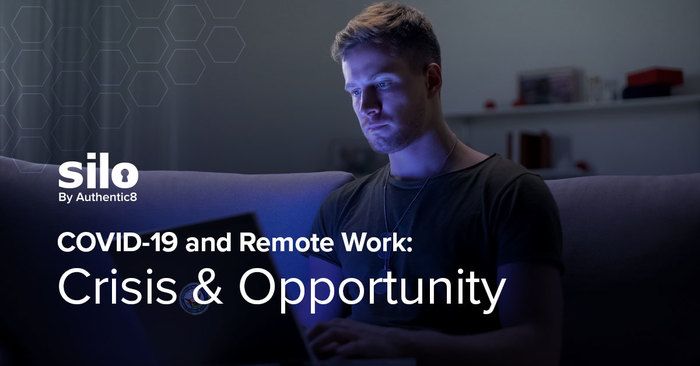Remote work has gone from "nice to have” to “must do” in a matter of days for many, due to the COVID-19 pandemic. Historically, the federal government and especially the Department of Defense has been reluctant to embrace remote work. Has time for change arrived?
While serving in the United States Navy, I made experimenting with remote work a priority of mine. Here’s what I learned.
One of our valued civilian teammates made a pitch (through the chain of command, of course) that he and his family wanted to relocate from Suffolk, VA to Northern California. Would it be possible, he asked, to stay on the team?
We have some amazing people within our federal civilian workforce, Sam was one of them. Professionals like him have a tremendous amount of opportunities in the private sector. During my last command tour, we went through a spell where a few of our valued civilian teammates were lured away by private companies.
They loved our mission and were satisfied with their salary. What they were missing were other attributes the DoD was (and largely is) not yet ready to truly embrace.

We didn’t want to lose Sam. He was a critical contributor to our team. Sam was a little reluctant to share his request at first, and was grateful to hear that we were willing to give it due consideration.
Priding ourselves in being a true 21st century employer, we started digging deep. We researched the DoD’s extremely prescriptive telework policy, assessed it’s spirit more than its letter, and sprinkled in a little creative compliance, but compliance nonetheless.
And we made it work. Sam moved to California with his family, and to this day remains a valued member of the same command. In fact, I’d go so far to say that the DoD is getting more out of this arrangement than Sam.
More leaders are open to the idea of accommodating a remote workforce, more teammates are desiring the freedom that accompanies turning “work” into something they do, and not a place they go.
Emergencies such as the COVID-19 pandemic can make remote work mandatory at times.
How did Sam, our team, and I make it happen? Regardless of the reason you may be heading down this path, you will learn plenty as you go.
Here are some of the lessons Sam and I have learned during our journey from various security standpoints:
Current events are giving more people reason to see value in remote work. I am certain that one of the most significant lessons for leaders across the public and private sectors will be that they need to equip all employees with the ability to work remotely when the situation requires it.
Personally, I’ve never thought about the possibility of our current situation before. Remote work simply made sense to me from a pure productivity, recruitment, and retention perspective.
Now more leaders, including those who live in the stale corridors of the Pentagon, are beginning to understand that the work environment can be the most powerful recruitment and retention tool there is.
The current push to facilitate remote working has grabbed the attention of many. Will it become an enduring part of how everyone executes their mission very soon?
I certainly hope so, thinking of my former teammates and those who join them, in uniform or on the civilian side. There are many things I enjoyed throughout my DoD tenure, and there are many things that my time in uniform makes me appreciate about my current employer. The freedom to work both remotely and asynchronously is at the top of that latter list.
Never before have I been this productive, enjoyed a truly balanced family/work life, and felt so trusted. I look forward to the day when more of my DoD teammates will feel the same. We like to say, “People are our greatest assets,” as we contemplate how best to recruit and retain the amazing talent we are lucky enough to employ.
The reality is that if you aren’t embracing remote work, you aren’t going to attract and retain the talent that you need - including in the federal government and the U.S. military. As Simon Sinek has taught many, the decision to join a movement may “Start with Why” but the decision to stay a part of it Ends with How… - how work is done.
Make work a thing you and your team members do, not a place you go. Or risk watching them go…